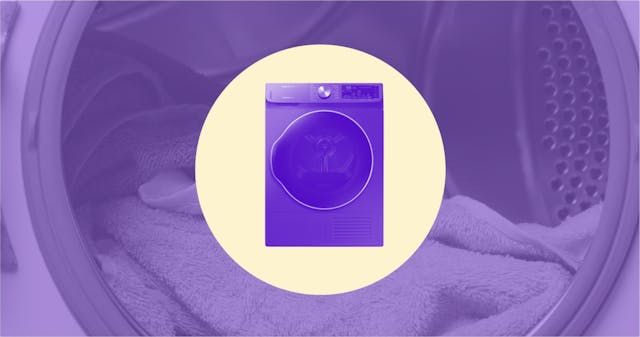
Clothes dryer electric
Want a clothes dryer that is more efficient and gentler on your clothes?
Read more about Clothes dryer electric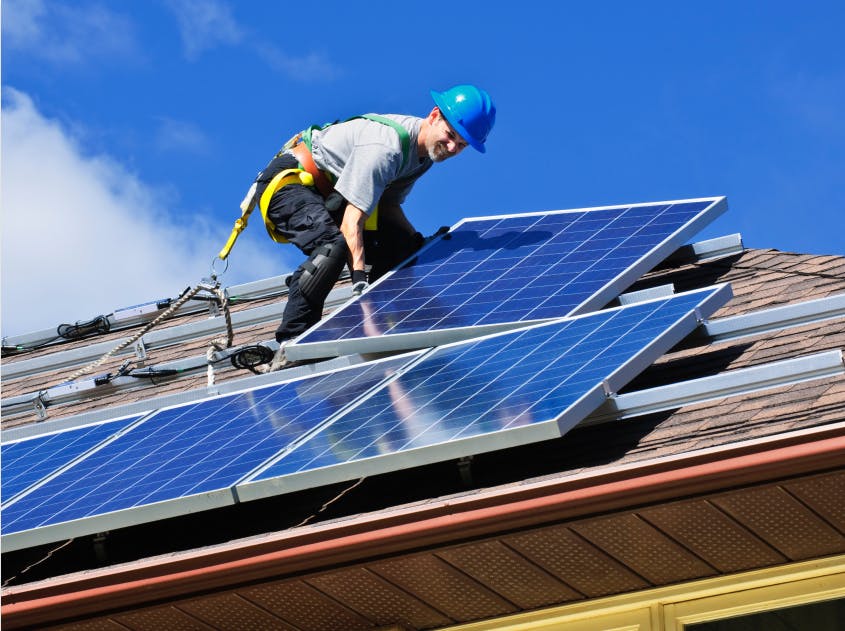
Rooftop solar uses solar photovoltaic (PV) panels to turn sunlight into electricity. PV panels can be installed on your roof, or even in your yard. They produce no carbon emissions and can save you thousands of dollars a year. If rooftop solar doesn't work for you, you may be able to participate in a Community Solar program.
Why do it?
To save money by generating carbon-free energy for your home.
When?
Any time, as long as you don’t plan on replacing your roof in the near future.
Who is this for?
Rooftop solar for homeowners, community solar for renters.
Read more about solar power
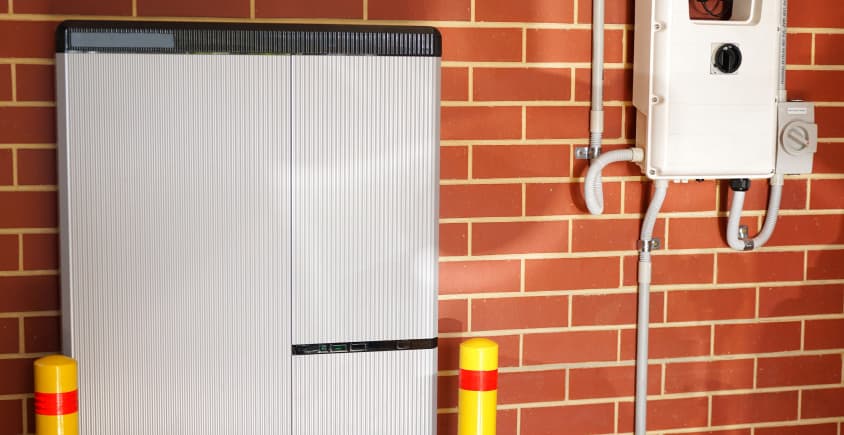
Home battery storage
When paired with home battery storage, rooftop solar can keep your home powered in the event of grid outages. Home battery storage also lets you store energy from the sun to use at night. Visit the battery storage page on our savings calculator to learn more.
Upfront Costs
$17,000–$24,000 (after tax credits)
Average Lifespan
20 - 30 years
Cost Savings
$1,000+
Features
Zero-carbon, no-cost electricity
Difficulty
Hard, hire a solar installer
Environmental benefits
Carbon-free electricity
Rooftop solar produces no carbon emissions, and can save you thousands of dollars a year
Federal
Create a personalized plan to see more incentives
To view a personalized list of federal, state, utility, and local incentives, you need to create an electrification plan
Start an electrification planAlready have an account? Log in
Try our contractor directory
We've curated a list of contractors and contractor networks that provide the talent you're looking for. Check it out!
Find contractors

Solar power 101
Everything you need to know about solar, including solar panel options, incentives, average costs, and more.
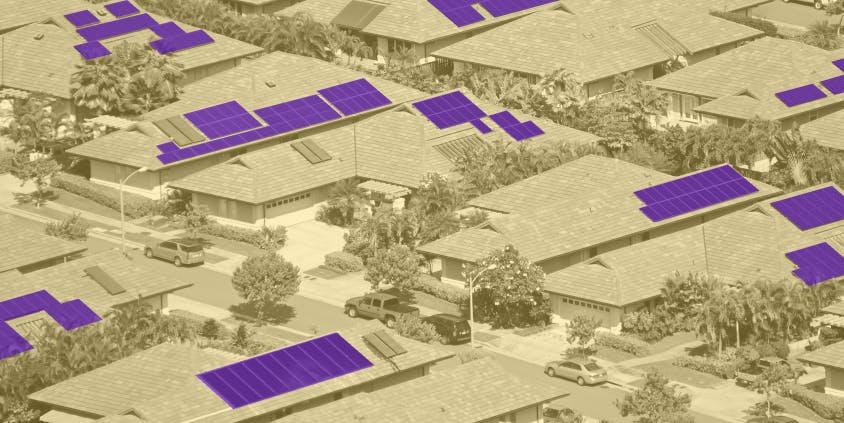
Solar cheat sheet
Project Sunroof: A guide to solar solutions
Guide to community solar
Solar: Pricing, costs, and financing
Solar and home battery storage
Electrify your home with the help of a trusted, qualified solar installer
Download our guide for tips on working with solar installers, questions to ask, and how to evaluate quotes.
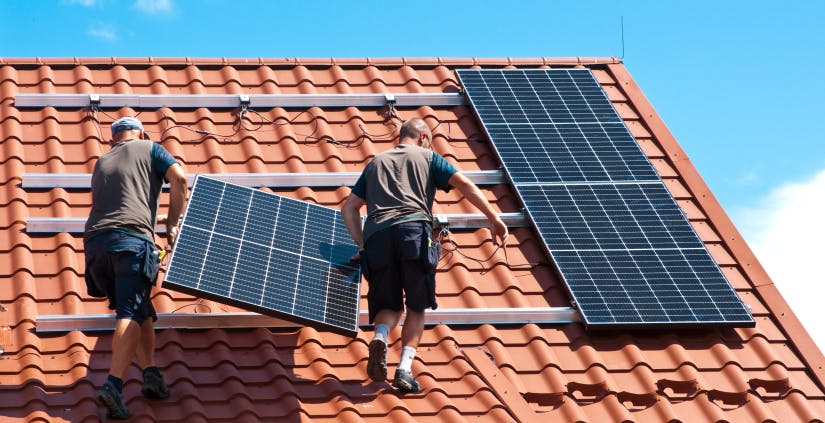
What is net metering and how can I find out if my state offers it?
Net energy metering means that your utility pays you for excess electricity generated by your solar panels. You can check with your utility company to find out if your state has mandatory rules. Learn more about net metering from the Solar Energy Industries Association here.
My home doesn’t get enough sunlight, is there something else I can do?
If your home is not right for solar, we recommend participating in a community solar program. A community solar project is a central solar power plant, whose electricity is purchased by multiple community members. Community solar participants often save between 5 to 15 percent on their electricity bills.

Clothes dryer electric
Want a clothes dryer that is more efficient and gentler on your clothes?
Read more about Clothes dryer electric
Cook electric
Want a stove that’s both better and healthier?
Read more about Cook electric
Drive electric
Want a car or truck that’s better, faster, and cleaner?
Read more about Drive electric
Electric lawn care
Electric mowers help tenters do healthier lawn care
Read more about Electric lawn care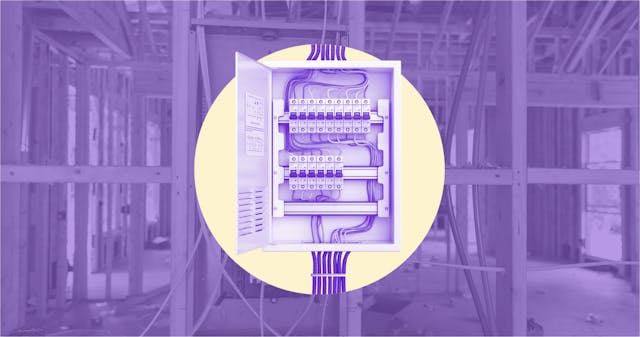
Electric panel
Want to wire your home for electrification?
Read more about Electric panel
Energy audits
Get ready to go electric with a whole-home energy audit
Read more about Energy audits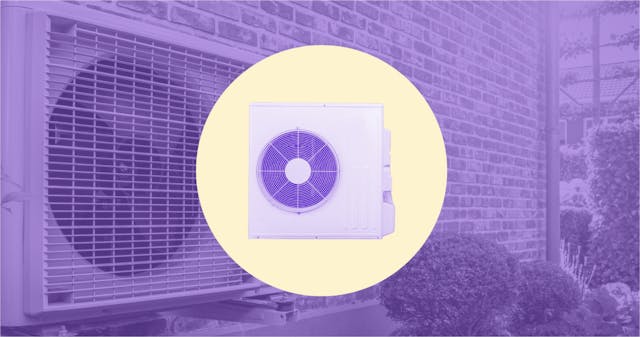
Heat and cool electric
Want an A/C and furnace that’s better and more efficient?
Read more about Heat and cool electric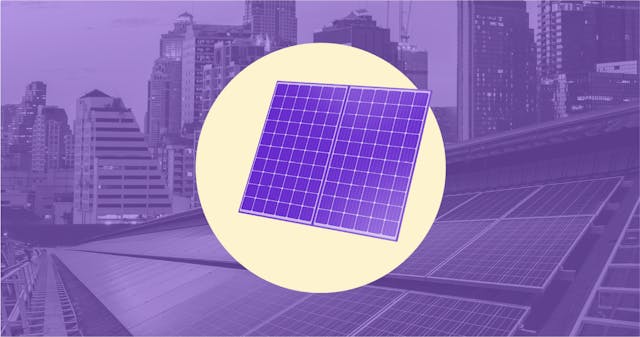
Solar electric
Want to power your home with limitless solar energy?
Read more about Solar electric
Water heat electric
Want a water heater that is 3x more efficient?
Read more about Water heat electricRewiring America is focused on making American households the center of a clean, resilient energy future. Learn more about our tax-exempt status.
Subscribe to receive Rewiring America's latest updates
Give feedback